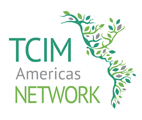Traditional medicines and their articulation with health systems and services
Since the Declaration of Alma Ata in 1978 and the adoption of ILO Convention 169 on Indigenous and Tribal Peoples in Independent Countries in 1989, as well as the ICESCR in 1996, international organisations have issued resolutions, approved strategies and adopted work agendas. These recognise the health of indigenous and Afro-descendant peoples as a fundamental human right closely related to other human rights, for which governments are responsible. The resolutions urge and recommend that countries in the Americas adopt public policies recognizing their ethnic, cultural and health diversity. These policies should address the particularities of their populations and incorporate an intercultural approach into their health policies, plans and programmes as part of the primary healthcare strategy (1), (2), (3), (4), (5).
In 2007, the Pan American Health Organization (PAHO) produced a position paper entitled ‘The Renewal of Primary Health Care in the Americas’ after reviewing the values and principles that had inspired the Alma Ata Declaration on Primary Health Care (PHC). According to PAHO Director Mirta Roses, the objective of the paper was ‘…to serve as a reference for all countries seeking to strengthen their health care systems, bringing health care closer to people living in urban and rural areas, regardless of gender, age, ethnic group, social status, or religion’. For this reason, PHC has been adopted by indigenous, Afro-descendant, Romani and other ethnic groups in the region as a means of developing their traditional medicines.
In this context, the countries of the Americas are obliged to respect, protect and fulfil human rights, including the right to health. These rights are universal and cover all aspects of life. They include not only the civil, political, social, economic and cultural rights of individuals, but also the collective rights of peoples, such as self-determination, equality, development and peace. These rights must be applied to everyone, regardless of race, sex, ethnic or social origin, religion, language, nationality, age, sexual orientation, disability or any other distinguishing feature. These rights must be materialised through positive action focused on groups or individuals who have traditionally been discriminated against due to their ethnicity, political orientation, etc., or who are in a vulnerable situation due to physical, economic or social conditions. Positive action can take the form of regulations, public policies or legal action.
Therefore, for the WHO, the responsibility of the state extends beyond solving health problems to include preventing the various risks (natural, economic, violence, etc.) that can impact the health and well-being of individuals and communities.
Addressing the health needs of indigenous, Afro-descendant, Roma, and other ethnic populations presents significant challenges. This includes providing concrete responses to health issues and their determinants, as well as recognizing traditional medical systems that reflect their history, context, region, and worldview. These systems are a vital component of comprehensive health solutions and the common welfare of humanity.
For several decades, countries in the Americas have highlighted the existence and survival of traditional medicines in their constitutions and local jurisprudence. This is fundamentally framed by the recognition of the individual and collective rights of these populations, as well as the vindication of their rights and the recognition and appreciation of their cultures. These countries have also recognized traditional medical systems, together with their knowledge, practices, and practitioners, and have promoted them as an alternative and complementary option to conventional medicine. Likewise, they are advancing intercultural health processes whose magnitude varies as it responds to national social, political, and economic realities regarding the integration of traditional medicine into health systems and its implementation in health services and the provision of culturally relevant health services.
References
- United Nations. Substantive issues arising in the implementation of the International Covenant on Economic, Social and Cultural Rights. General Comment No. 14 The right to the highest attainable standard of health (Article 12 of the International Covenant on Economic, Social and Cultural Rights). [Internet], 2000. Committee on Economic, Social and Cultural Rights. E/C.12/2000/4. Available at: https://undocs.org/es/E/C.12/2000/4
- Pan American Health Organization PAHO/WHO. Policy on Ethnicity and Health. [Internet]. 2017. CSP29/7. Rev. 1. Available at: https://www.paho.org/es/documentos/politica-sobre-etnicidad-salud
- Andean Health Organization, Hipólito Unanue Agreement ORAS-CONHU. Andean Policy on Intercultural Health. [Internet]. 2019. 2nd ed. Available at: https://www.orasconhu.org/es/content/pol%C3%ADtica-andina-de-salud-intercultural
- Pan American Health Organization PAHO. Resolution CD47.R18 on the Health of Indigenous Peoples in the Americas [Internet]. 2006. Available at: https://www3.paho.org/spanish/GOV/CD/cd47.r18-s.pdf
- Pan American Health Organization PAHO. PAHO/WHO Resolution CD53.R14. Strategy for universal access to health and universal health coverage [Internet]. 2014. Available at: https://www.paho.org/hq/dmdocuments/2014/CD53-R14-s.pdf
- World Health Organization WHO. Resolution A/RES/70/1. 2030 Agenda for Sustainable Development. [Internet]. 2015. Available at: http://www.un.org/sustainabledevelopment/es/2015/09/la-asamblea-general-adopta-la-agenda-2030-para-el-desarrollo-sostenible/


